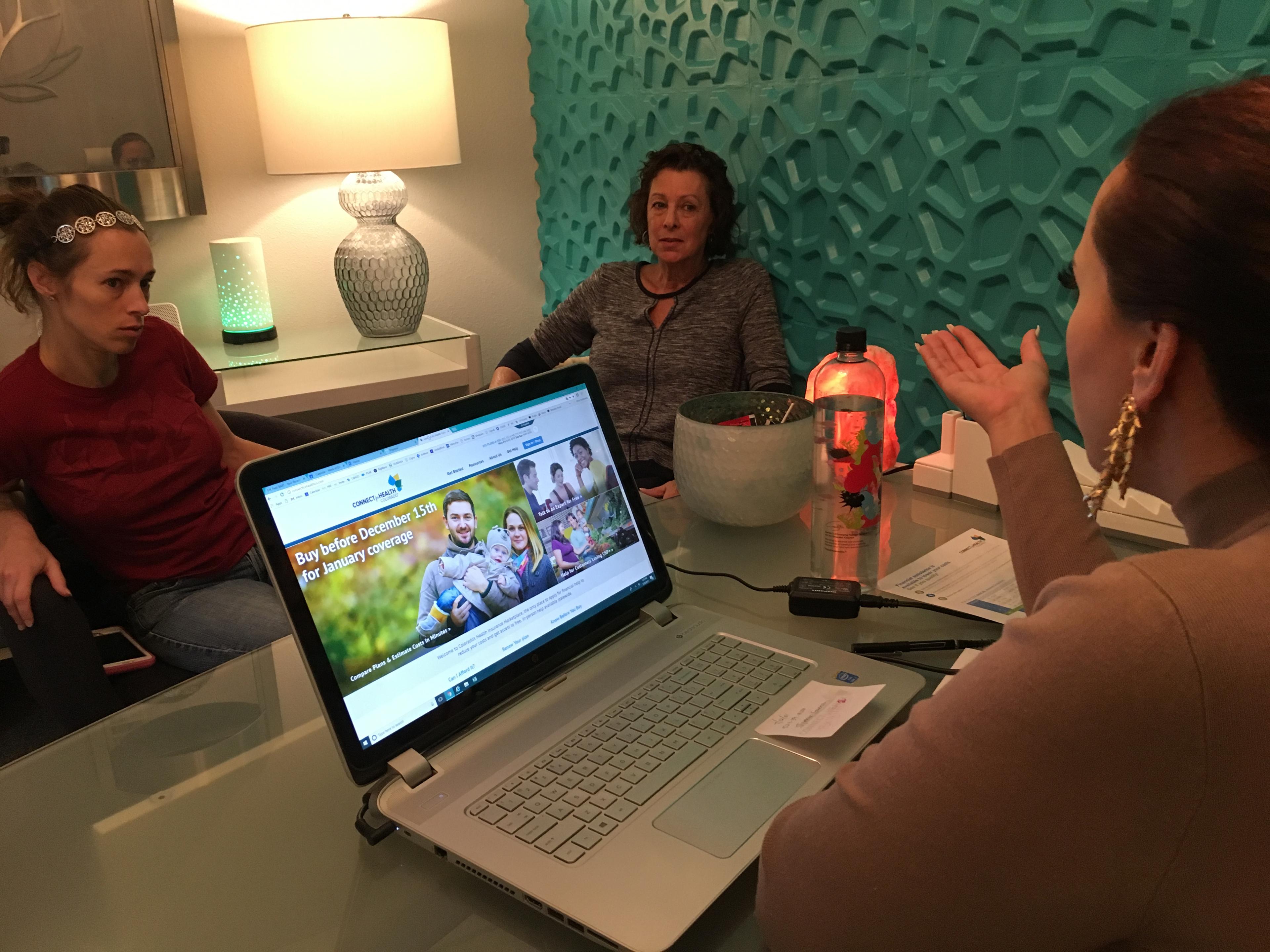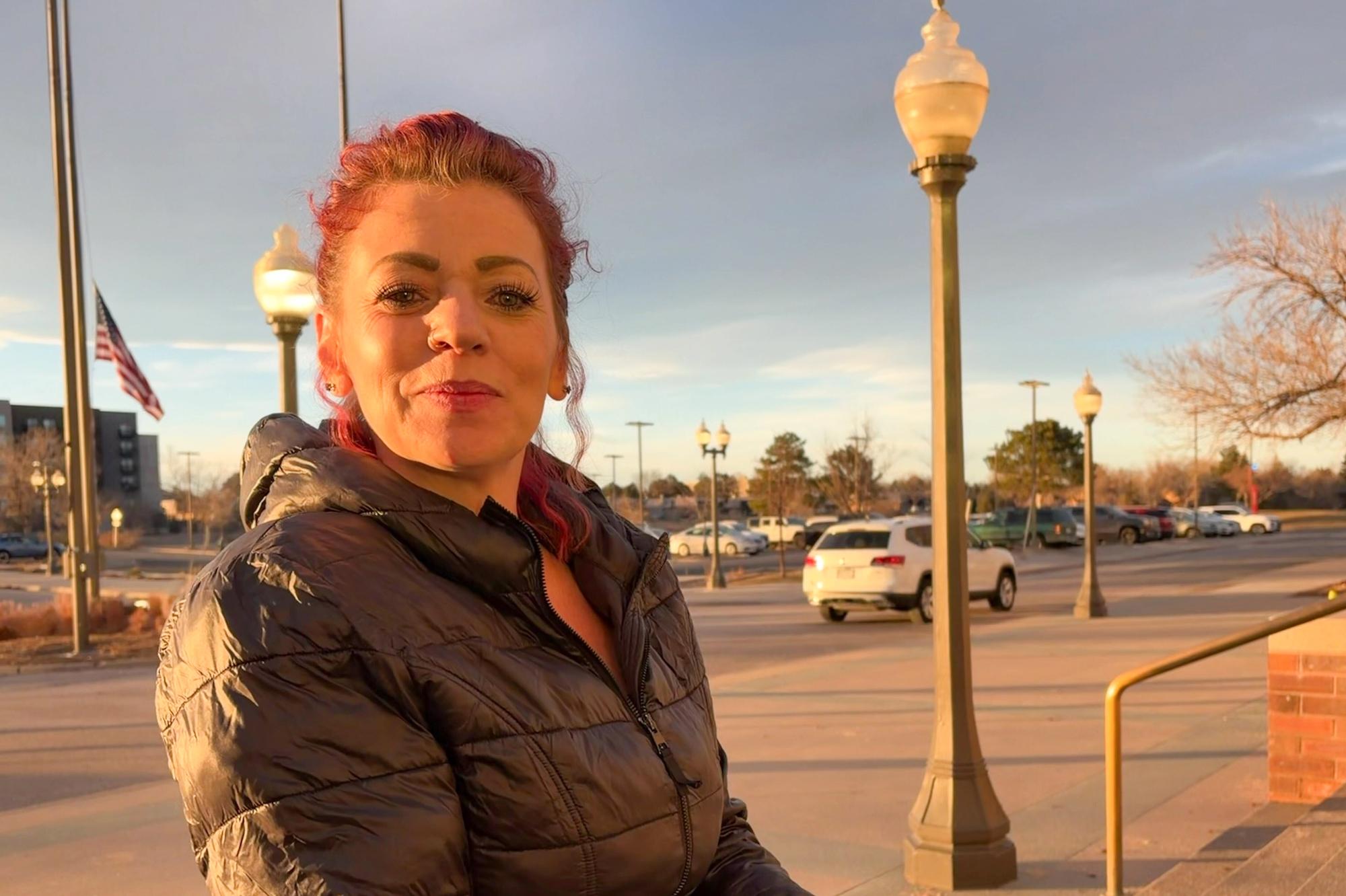

From the day President Donald Trump took office a year ago, he’s sharply criticized the Affordable Care Act as “a complete and total disaster.” But the Republican drive to “repeal and replace” the law has not yet happened.
So Obamacare survives, along with plenty of questions about its future — and for people who want to sign up for coverage under the program. Broker Justina Burciaga, at a bustling enrollment center in Westminster, said all the uncertainty has not dampened consumer demand.
“People are coming in in droves and trying to make sure that they secure coverage for next year,” Burciaga said. “It's been so widely publicized this year, and I think that's what's driven a lot of people here.”
It’s part of a trend. In 2016, Connect for Health Colorado, the state's exchange, insured about 200,000 people. Signups for 2018 plans on the individual market are up compared to the previous year — updated numbers will be revealed on Monday.
Burciaga has been a health coverage broker for years and said many consumers worry how potential changes coming from Washington might hit them.
“They were scared” that the government was going to take their healthcare away, she said. “They were like, ‘How am I going to get my prescriptions, or how am I going to go to continue my treatment, or what am I going to do if he takes this away?’”
Tymbre Guerin was at the center to re-enroll through the exchange. The 36-year-old lives in Federal Heights and shares the angst about all the healthcare uncertainty. She came in to buy insurance after her mom reminded her this year’s sign up period is shorter.
“I don't know that everybody knows that. I mean I don't like straight up watch news, so she just mentioned it,” Guerin said. “That's why I knew. I didn't know that on my own.”
Guerin sells jewelry; she’s self-employed. But she worries premiums on her Kaiser plan will go up. Burciaga crunched the numbers, and told Guerin costs for her plan would stay about the same: $176 a month, with a max out-of-pocket cost of $2,000.
Guerin was relieved but still frustrated by the high costs and the ongoing fight.
“You can't fix (the health insurance system) right away. It's a slow process. Now people are trying to undo that version of trying to fix what's really the problem,” Guerin said. “I mean the real problems aren’t getting fixed. It's, ‘Why is this so expensive?’”
Targeted Online Advertising
More than 80 percent of Coloradans re-enroll for insurance on the individual market. Increasingly, Connect for Health is trying to get the word out about the program through targeted advertising.
Senior marketing manager Caren Henderson said the organization uses Census, demographic and income data to focus on Zip codes with the most eligible residents who do not have health coverage. Those ads go up on sites like Pandora or Facebook. The health insurance exchange is trying to use the ads to highlight that many people may qualify for a subsidy but may not realize it.
She played one web ad in which a woman says to another, “Individuals earning up to $48,000 a year can be eligible to lower the cost of health insurance.”
“Are you serious?” the other woman replies.
Henderson said if something in Washington changes, then the exchange can change its message.
"You can get really targeted in your demographics with that and we choose to use digital tactics because it gives us more flexibility,” Henderson said.
Another factor driving participation in Colorado’s exchange: Despite upheaval in Washington, federal subsidies — tax credits — continue. They help people pay for insurance.
Joe Hanel, spokesman for the Colorado Health Institute, said that on average premiums are up more than 30 percent this year, but subsidies are up too. “That actually means that if you qualify for a subsidy you probably are going to get a cheaper price in 2018 then you had this year.”
In some cases that discount can be significant, perhaps 20 percent less. And more than 70 percent of people in the exchange are eligible for tax credits.
Broker Burciaga said the health coverage world for years now has been like a rollercoaster, with consumers never quite sure what kind of ride they’ll get. “There's no stabilization happening in the marketplace,” Burciaga said. “Every year it's a blind guess.”
One certainty in 2017 is that the open enrollment window in Colorado is two-weeks shorter. It ends Jan. 12.
The Trump administration chose to end open enrollment through the federal sign up system, healthcare.gov, six weeks early, on Dec. 15.
Connect for Health Colorado spokesman Luke Clarke said the exchange worked with the Division of Insurance, the state’s seven health insurance carriers and other stakeholders on setting the state’s date. “We had latitude,” Clarke said, since Colorado has its own exchange. “There are pros and cons to reducing the period but we arrived at a happy medium shortening but not as abruptly as the federal marketplace.”









